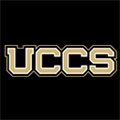What do they do?
Apply remote sensing principles and methods to analyze data and solve problems in areas such as natural resource management, urban planning, or homeland security. May develop new sensor systems, analytical techniques, or new applications for existing systems.
Also known as:
Geospatial Intelligence Analyst, Image Scientist, Remote Sensing Analyst, Remote Sensing Scientist, Research Scientist, Scientist, Sensor Specialist
-
0%
Change
Ranks #38 in job growth rate40Job Openings
Ranks #21 in net job growth
-
North Carolina A & T State University
Greensboro, NC
-
University of Massachusetts-Dartmouth
North Dartmouth, MA
-
University of Colorado Colorado Springs
Colorado Springs, CO
-
Columbia University in the City of New York
New York, NY
-
Stony Brook University
Stony Brook, NY
Looking for colleges that offer a specific major? Use the College Match Tool to find your best-matched schools and discover your estimated Net Price!
- Doctorate or Professional Degree (50%)
- Master's degree (23%)
- Bachelor's degree (27%)
- Associate's degree (<1%)
- Some college, no degree (<1%)
- High school diploma equivalent (<1%)
- Less than high school diploma (<1%)
Most Popular Majors that prepare Remote Sensing Scientists and Technologists
-
#1
-
Degrees Granted
37
-
Female Students
17
-
Male Students
20
-
Median Starting Salary
$51,867
-
-
#2
-
Degrees Granted
30
-
Female Students
17
-
Male Students
13
-
Median Starting Salary
$47,533
-
-
#3
-
Degrees Granted
11
-
Female Students
2
-
Male Students
9
-
Median Starting Salary
$47,533
-
People in this career often have these skills:
- Reading Comprehension - Understanding written sentences and paragraphs in work-related documents.
- Critical Thinking - Using logic and reasoning to identify the strengths and weaknesses of alternative solutions, conclusions, or approaches to problems.
- Active Listening - Giving full attention to what other people are saying, taking time to understand the points being made, asking questions as appropriate, and not interrupting at inappropriate times.
- Writing - Communicating effectively in writing as appropriate for the needs of the audience.
- Speaking - Talking to others to convey information effectively.
- Science - Using scientific rules and methods to solve problems.
- Mathematics - Using mathematics to solve problems.
- Complex Problem Solving - Identifying complex problems and reviewing related information to develop and evaluate options and implement solutions.
- Judgment and Decision Making - Considering the relative costs and benefits of potential actions to choose the most appropriate one.
- Systems Analysis - Determining how a system should work and how changes in conditions, operations, and the environment will affect outcomes.
- Systems Evaluation - Identifying measures or indicators of system performance and the actions needed to improve or correct performance, relative to the goals of the system.
- Active Learning - Understanding the implications of new information for both current and future problem-solving and decision-making.
- Monitoring - Monitoring/Assessing performance of yourself, other individuals, or organizations to make improvements or take corrective action.
People in this career often know a lot about:
- Geography - Knowledge of principles and methods for describing the features of land, sea, and air masses, including their physical characteristics, locations, interrelationships, and distribution of plant, animal, and human life.
- Computers and Electronics - Knowledge of circuit boards, processors, chips, electronic equipment, and computer hardware and software, including applications and programming.
- Mathematics - Knowledge of arithmetic, algebra, geometry, calculus, statistics, and their applications.
- Engineering and Technology - Knowledge of the practical application of engineering science and technology. This includes applying principles, techniques, procedures, and equipment to the design and production of various goods and services.
- English Language - Knowledge of the structure and content of the English language including the meaning and spelling of words, rules of composition, and grammar.
- Physics - Knowledge and prediction of physical principles, laws, their interrelationships, and applications to understanding fluid, material, and atmospheric dynamics, and mechanical, electrical, atomic and sub-atomic structures and processes.
People in this career often have talent in:
- Deductive Reasoning - The ability to apply general rules to specific problems to produce answers that make sense.
- Inductive Reasoning - The ability to combine pieces of information to form general rules or conclusions (includes finding a relationship among seemingly unrelated events).
- Oral Comprehension - The ability to listen to and understand information and ideas presented through spoken words and sentences.
- Written Comprehension - The ability to read and understand information and ideas presented in writing.
- Oral Expression - The ability to communicate information and ideas in speaking so others will understand.
- Written Expression - The ability to communicate information and ideas in writing so others will understand.
- Problem Sensitivity - The ability to tell when something is wrong or is likely to go wrong. It does not involve solving the problem, only recognizing that there is a problem.
- Near Vision - The ability to see details at close range (within a few feet of the observer).
- Information Ordering - The ability to arrange things or actions in a certain order or pattern according to a specific rule or set of rules (e.g., patterns of numbers, letters, words, pictures, mathematical operations).
- Mathematical Reasoning - The ability to choose the right mathematical methods or formulas to solve a problem.
- Category Flexibility - The ability to generate or use different sets of rules for combining or grouping things in different ways.
- Fluency of Ideas - The ability to come up with a number of ideas about a topic (the number of ideas is important, not their quality, correctness, or creativity).
- Number Facility - The ability to add, subtract, multiply, or divide quickly and correctly.
- Speech Clarity - The ability to speak clearly so others can understand you.
- Flexibility of Closure - The ability to identify or detect a known pattern (a figure, object, word, or sound) that is hidden in other distracting material.
- Originality - The ability to come up with unusual or clever ideas about a given topic or situation, or to develop creative ways to solve a problem.
- Speech Recognition - The ability to identify and understand the speech of another person.
People in this career often do these activities:
- Analyze geological or geographical data.
- Record research or operational data.
- Create images or other visual displays.
- Prepare scientific or technical reports or presentations.
- Compile geographic or related data.
- Develop environmental research methods.
- Develop technical or scientific databases.
- Collect geographical or geological field data.
- Collect environmental data or samples.
- Train personnel in technical or scientific procedures.
- Set up laboratory or field equipment.
- Direct technical activities or operations.
- Review professional literature to maintain professional knowledge.
- Attend conferences or workshops to maintain professional knowledge.
- Evaluate new technologies or methods.
- Advise others on the development or use of new technologies.
- Apply knowledge or research findings to address environmental problems.
- Develop software or applications for scientific or technical use.
This page includes data from:

 Occupation statistics: USDOL U.S. Bureau of Labor Statistics Occupational Employment Statistics
Occupation statistics: USDOL U.S. Bureau of Labor Statistics Occupational Employment Statistics
 Videos: CareerOneStop, USDOL/ETA and the Minnesota Department of Employment & Economic Development
Videos: CareerOneStop, USDOL/ETA and the Minnesota Department of Employment & Economic Development









